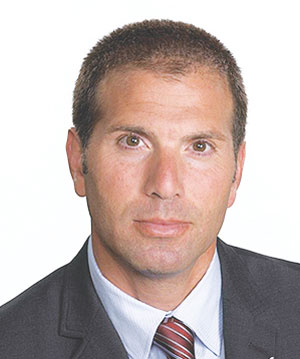The state of Washington is proving to be a leader in expanding the legal model in the United States with its adoption of limited licence legal technicians to help address the gaps in legal services in family law.

The move seeks to fill the huge gap in access to family law services and includes plans to eventually broaden to other practice areas.
And there are indications that other jurisdictions may follow suit. “After we defined the scope of what they could do in family law, we developed a curriculum at law school,” says Steve Crossland, a sole practitioner who serves as chairman of Washington’s Limited License Legal Technician Board.
“Our judges are now realizing by having [legal technicians] involved that their dockets will be freed up.”
A three-year program developed at the state’s law schools saw its first cohort of 14 graduates this year. The program followed consultations with family law practitioners to address access to justice issues. As in many parts of Canada, a large portion of those involved in family law issues represent themselves in Washington.
Limited licence legal technicians are able to do much of the work on a family law file, although lawyers handle the more complex issues. The mandatory education outlines what they can’t do in order to delineate the boundaries.
Crossland began working on the project more than a decade ago after sitting on a disciplinary committee. It became clear to him then that access to justice remained an outstanding issue and the traditional model wasn’t going to fix the problem. From there, he began searching for alternative solutions.
But there was pushback before the Washington State Bar Association decided to go ahead with the program. When the motion first came up in 2006, it went down to defeat by a 13-1 margin. And the support only grew to two by the next vote in 2008.
Earlier this year, the Washington Supreme Court also decided legal technicians could have minority ownership in law firms with some limitations. Crossland sees that as potentially beneficial to lawyers because it would allow law firms to expand into areas they may not be currently working in. A study done for the court identified a latent market where people didn’t know or believe they required legal help.
In Ontario, the Law Society of Upper Canada began regulating paralegals in 2007. An independent review of paralegal regulation that examined their scope of practice five years later resulted in no changes.
While Ontario is the only province regulating paralegals, other provinces place restrictions on what they can do.
Stephen Parker, president of the Ontario Paralegal Association, says some paralegals had been doing work in family law prior to regulation. And although nothing resulted from the review in Ontario, the expanded scope remains on the table. The United States, he adds, is the latest to go in that direction after Australia and Britain.
In England, he adds, the work of the paralegal leans more towards solicitor work whereas in Canada the focus is more on advocacy.
Parker sees a continuing evolution, although perhaps not a rapid one, of the role of paralegals. New licensing exams in Ontario will begin in August and will further formalize the field.
“Paralegals have come a very long way,” says Parker, pointing to former police officer Brian Lawrie’s struggle to carve out a niche after launching POINTTS in 1984.
“It takes time,” he adds. “We’re in it for the haul.”
Family law practitioner Steven Benmor, chairman of the Ontario Bar Association’s family law section, has been a keen observer of the debate over whether the role of paralegals should expand to family law. Lawyers, of course, haven’t necessarily embraced paralegals’ interest in expanding the scope of their work. But as Benmor points out, roughly half of those who experience a marital separation represent themselves.
Benmor also predicts that with the bencher elections now over, the debate over alternative business structures will now move to the next level.
Washington’s experience has led Crossland on something of a cross-country tour as he speaks to bar associations, courts, and groups in more than a dozen states about the changes. He also recently addressed a group in British Columbia.
Crossland sees a continuing evolution of the limited licence legal technician model. Immigration, for instance, is an area where he sees licensed practitioners who aren’t lawyers can have a positive impact.
It may be possible in the future, he says, to see law schools offering similar programs in specialty areas to provide alternative, more accessible legal services. One possible scenario is offering of one-, two- or three-year law degrees with each tailored to meet the needs of the consumer instead of the current focus on a single program. That would also allow for a narrow focus for limited licence legal technicians.
From his perspective, Benmor sees a role in family law for professionals other than lawyers as long as they have the proper training, annual updates, and clear regulations.
“The big but is that they ought to be operating under the auspices of a lawyer,” he says.

 The move seeks to fill the huge gap in access to family law services and includes plans to eventually broaden to other practice areas.
The move seeks to fill the huge gap in access to family law services and includes plans to eventually broaden to other practice areas.